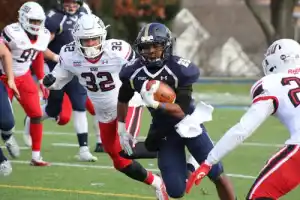In order to understand how important the Africa Cup is, one should look at the world map. More precisely, on the Gall-Peters projection, which more realistically shows the ratio of the sizes of the continents.
Football is not the only sport that is popular among bettors. They also pay attention to basketball, hockey, biathlon and of course equestrian sports. 22Bet is the best bookmaker for betting on this sport, so we advise you to try live horse racing betting on their website or app.
This alone seems to hint that this is an extremely important and large-scale tournament that should not be underestimated. We are talking about a continent that is three times the size of Europe. Africa can fit the entire territory of the United States, China and India combined – and more will remain. Twenty percent of the entire landmass of the Earth is Africa.
But it’s not just about scale. The history of Africa is complicated and difficult, and just a glance at the borders of countries makes it clear how everything is different here. Europeans have left scars across a continent that is both old and young. Ghana became the first sub-Saharan country to gain its independence, and it happened on March 6, 1957. In a couple of months, she will be 65 years old.
There are 54 countries in Africa today, according to the United Nations. The combined population of the continent is believed to be 1.3 billion people, about 16 percent of the world’s population. It is estimated that over 2,000 different languages are spoken on the continent, compared to about 300 in Europe.
“For young fans, such tournaments are like the first course in geography. This allows them to understand how big and diverse the world is, says Salim Masood Saeed, an African football journalist. – The African Cup of Nations is the first tournament that I remember. That is why he is so important to me. I remember how Burkina Faso, the host country, came in third. Most people don’t care, but I remember that moment so much, because before that I didn’t even know that such a country existed.”
Ajax striker Sebastien Allais was recently asked if he would rather stay in the Netherlands than travel to Africa to represent the Ivory Coast. “This question is an insult to all Africans. Would you ever ask a European the same thing? Of course I’m going to the African Cup.”
Former England striker Ian Wright believes media coverage of the tournament is always accompanied by racist remarks. Crystal Palace manager Patrick Vieira, who was born in Senegal, suggested that journalists “fly to Africa and talk to people to understand how important it is for them.”
“When we moved to the UK, tournaments allowed us to connect with the continent and our roots,” Said said.
But the dislike of Europeans for AFKON is understandable – it disrupts the course of the European football calendar. They say we need to move it to the summer. Or that the tournament should be held every four years, not two. Or that the quality of the fields leaves much to be desired, and the goalkeepers are generally a circus. That football in Africa is corrupt, and all the money for its development ends up in the pockets of cunning politicians.
But it is not so.
Yes, there are security issues – a pandemic is raging on the continent, and the country is afraid of a civil war. Old problems that never go away.

